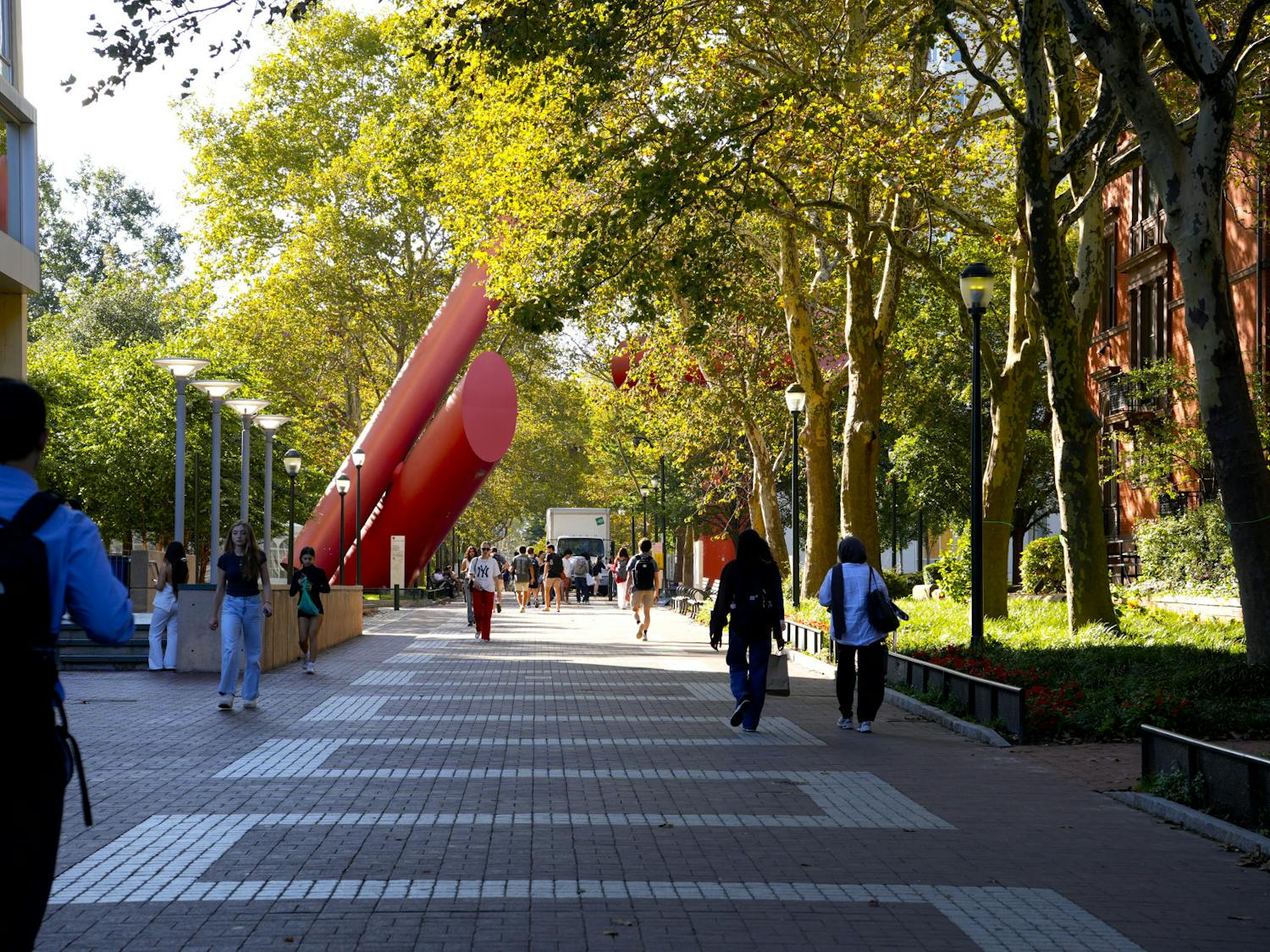Penn’s School of Engineering and Applied Science announced on Tuesday that it was launching a bachelor's degree in artificial intelligence.
The Raj and Neera Singh Program in AI — which will become available to students in fall 2024 — is the first of its kind offered in the Ivy League, and one of the first AI undergraduate engineering degree programs offered at a major United States university. The curriculum consists of courses in machine learning, computing algorithms, cognitive science, and electrical and systems engineering, among others.
According to an Engineering School press release, students in the program will be “empowered to develop responsible AI tools that can harness the full knowledge available on the internet,” allowing them to make transformative scientific discoveries and health care breakthroughs.
The program’s courses will be taught in Penn Engineering’s newest building, Amy Gutmann Hall.
Students pursuing the degree choose at least one course unit from several AI-specific categories, according to Penn Engineering’s website. Options include Introduction to AI, Machine Learning, Signals & Systems, Optimization & Control, Vision & Language, and AI Project — in which 30% of the course grade is awarded for an AI development.
Students can also concentrate in robotics, vision/language, machine learning, data/society, and health/systems.
Carnegie Mellon University was the first U.S. university to offer a bachelor's degree in AI in 2018.
Several students and faculty members voiced excitement and anticipation of the news of the new major.
RELATED:
Penn Engineering joins international alliance to promote open, responsible artificial intelligence
Penn Med resident to launch AI dictation software to ease administrative tasks for physicians
“We are thrilled to offer a cutting-edge undergraduate program that will empower Penn Engineering students to become leaders and innovators in AI,” UPS Foundation Professor of Transportation in Penn Engineering George Pappas — who will be leading the program — said.
Pappas added that in addition to foundational AI skills, the curriculum will educate students on the widespread impacts of AI in engineering.
Associate Dean of Undergraduate Education in Penn Engineering and the Andrea Mitchell University Professor Robert Ghrist said that the program represents Penn’s forward-thinking mentality.
“This is in keeping with Penn Engineering being ahead of the curve — we led the way with early programs in computer science, in computer engineering, and in bioengineering. We are future-oriented, and AI is part of our future,” Ghrist said.
While programs at other universities offer concentrations in AI, Ghrist said that Penn’s AI major is a “unique fusion” of efforts from CIS and ESE that allows students to go “all-in” on AI in engineering.
Zachary Ives — the chair of the department of Computer and Information Science — told The Daily Pennsylvanian that the new major is meant to recognize artificial intelligence as its own discipline and distinct from other fields.
Vijay Kumar, the Nemirovksy Family dean of Penn Engineering, wrote to the DP that he sees the new program as an opportunity to tackle the challenges that face society, ranging from health care to urban infrastructure. He wrote that AI will soon be used to discover new materials, synthesize new antibiotics, and design novel chips and circuits.
Engineering sophomore Emma Twitmyer shared her excitement at the opportunity to major in AI.
“A lot of our existing programs already lead students in the direction of AI, but it’s super exciting to have all of your coursework and your degree reflect that specific interest,” Twitmyer said.
Engineering junior Cody Hopkins said that it is great to see Penn on the forefront of innovation.
“The infrastructure of professors and research they already have within data science and computer science departments gives them a great platform to build this new major off of,” Hopkins said.
Ives and Kumar agreed that the AI degree offers an opportunity for education on responsible use of AI. Ives said that AI needs to be trained to minimize bias and maximize its ability to behave in a safe and responsible way.
Ghrist added that while many people imagine a worst-case scenario where AI eliminates job opportunities, AI will need to be integrated into all professions in the future.
“The demand for educated leaders is sky high,” Ghrist said.









